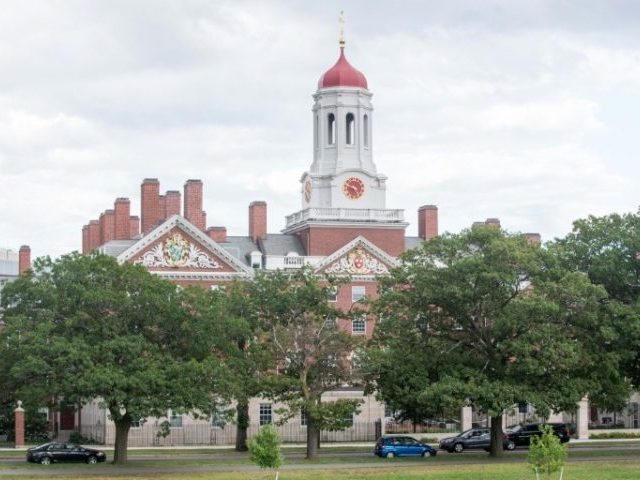Last week, Harvard announced that it had been “powerfully shaped” by slavery, and the editorial board of the Harvard Crimson came out in support of the anti-Israel (and antisemitic) “boycott, divestment, sanctions” (BDS) movement.
These two developments are related: once students are taught to hate America, it is a short leap for them to hate Israel, and Jews, because in both cases they learn to repudiate the idea that people can liberate themselves from oppression and earn success.
The global link between anti-American rhetoric and antisemitism emerged fully in the early 2000s, when critics of the U.S. response to terrorism began to describe America in much the way Jews had been described by haters for centuries.
But the underlying connection between these two forms of hatred only became clear to me when I returned to Harvard in 2006 as a law student, having graduated from the college in 1999, and after having lived abroad in South Africa for seven years.
My wife, who was then an economics student, told me horror stories about what her lecturer in American economic history was teaching about the evil roots of capitalism in America. I could scarcely believe what she was saying, so I visited a class for myself.
That day, the topic was the Internet. Students were told by the professor that despite the entrepreneurship of Bill Gates and Mark Zuckerberg, the miracles of Silicon Valley were really created by the government, not by private initiative.
I was stunned. Certainly government was part of the story, but it took the imagination of young inventors — students at the very college where this lecture was being given — to turn a computer network into the foundation for the tech revolution.
The message to students was that success was not earned through individual initiative; rather, it was inherited, either through the privilege of birth or beneficence of government. The effect was to evoke a sense of self-loathing in America’s future leaders.
At the time, I was president of the Alliance for Israel, the pro-Israel organization at Harvard Law School. And it struck me that if students believed success was a result of the “hidden hand” of a powerful elite, rather than the “invisible hand” of a free market, then Israel’s stunning achievements could only be understood as the manipulations of colonial powers.
And if colonial powers were being manipulated for Israel’s benefit, then the supposed culprits would easily be imagined as Jews.
Thus with Harvard’s own history. It is true that Harvard benefited from slavery, which is to say little more than that it was founded in 17th century New England, when slavery was part of colonial life.
But in the 19th century, Harvard was also a hotbed of abolitionism. More Harvard students died (117) fighting for the Union over four years than the number of slaves (70) who worked on or near Harvard’s campus over a century and-a-half. That sacrifice was Harvard’s atonement for slavery.
It was liberty, not slavery, that “powerfully shaped” Harvard.
Yet instead of celebrating the heroism of the Harvard students and alumni who fought for freedom, the institution’s leaders have sought to impose a burden of historical guilt on the place.
They claim that they are living up to Harvard’s motto, “Veritas,” but in fact they are denying it, because they are obscuring the truth of Harvard’s history. No institution is perfect, but Harvard’s own former values, now neglected, inspired its valor.
Harvard’s slavery report is the kind of self-renunciation that has become the price of participation in left-wing politics. So, too, with the Crimson, where Jewish editors have taken to social media to attack the Jewish state.
If they are true to their principles, they will boycott Israel fully, and dump their mobile phones and medications.
But they are hypocrites, destroying the Crimson as Harvard destroys itself, and for the same reason: a hatred of America that incubates a far older hatred.
Joel B. Pollak is Senior Editor-at-Large at Breitbart News and the host of Breitbart News Sunday on Sirius XM Patriot on Sunday evenings from 7 p.m. to 10 p.m. ET (4 p.m. to 7 p.m. PT). He is the author of the recent e-book, Neither Free nor Fair: The 2020 U.S. Presidential Election. His recent book, RED NOVEMBER, tells the story of the 2020 Democratic presidential primary from a conservative perspective. He is a winner of the 2018 Robert Novak Journalism Alumni Fellowship. Follow him on Twitter at @joelpollak.

COMMENTS
Please let us know if you're having issues with commenting.